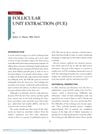 10 citations,
August 2023 in “Advanced Science”
10 citations,
August 2023 in “Advanced Science” Nitric Oxide has potential in medicine, especially for infections and heart treatments, but its short life and delivery challenges limit its use.
April 2024 in “Journal of composites science” Hydrogel composites have great potential in regenerative medicine, tissue engineering, and drug delivery.
November 2022 in “Journal of Nanobiotechnology” The developed system could effectively treat hair loss and promote hair growth.
[object Object]  January 2024 in “Journal of cosmetic dermatology”
January 2024 in “Journal of cosmetic dermatology” Long-hair follicular unit excision improves hairline restoration results and patient satisfaction.
 18 citations,
March 2022 in “Drug design, development and therapy”
18 citations,
March 2022 in “Drug design, development and therapy” Platelet-rich plasma (PRP) may help with various hair loss types, but more research is needed to find the best use method.
 28 citations,
March 1987 in “Journal of The American Academy of Dermatology”
28 citations,
March 1987 in “Journal of The American Academy of Dermatology” Minoxidil may help hair growth after transplant surgery.
 40 citations,
December 1980 in “The Journal of Dermatologic Surgery and Oncology”
40 citations,
December 1980 in “The Journal of Dermatologic Surgery and Oncology” An improved scalp reduction technique reduces the need for hair grafts and has minimal complications.
 21 citations,
December 2016 in “PLOS ONE”
21 citations,
December 2016 in “PLOS ONE” Scientists made skin stem cells from other human cells with over 97% efficiency, which could help treat skin conditions.
 18 citations,
December 2014 in “Plastic surgery”
18 citations,
December 2014 in “Plastic surgery” Follicular Unit Transplantation is an effective and safe treatment for hair loss due to scarring.
[object Object]  9 citations,
March 2017 in “Dermatologic Surgery”
9 citations,
March 2017 in “Dermatologic Surgery” Asian men with hair loss have different follicular densities: East/Southeast 61.1, South 63.5, West 63.6 FU/cm².
 3 citations,
January 2014 in “Plastic surgery (Oakville. Print)”
3 citations,
January 2014 in “Plastic surgery (Oakville. Print)” Hair transplant surgery is a safe and effective way to treat hair loss from scarring in Chinese patients.
 January 2018 in “Stem cells in clinical applications”
January 2018 in “Stem cells in clinical applications” Exosomes show promise for tissue repair and regeneration with advantages over traditional cell therapies.
 July 2008 in “Expert Review of Dermatology”
July 2008 in “Expert Review of Dermatology” Proper planning for hair transplants is crucial for natural results, with careful patient selection and strategic graft placement being key factors.
 172 citations,
November 1983 in “Journal of The American Academy of Dermatology”
172 citations,
November 1983 in “Journal of The American Academy of Dermatology” Chemotherapy can cause skin problems like hair loss, mouth sores, and skin darkening, and recognizing these can affect treatment decisions.
 142 citations,
December 1991 in “Antimicrobial Agents and Chemotherapy”
142 citations,
December 1991 in “Antimicrobial Agents and Chemotherapy” Dextran sulfate was found to be toxic and ineffective for treating HIV.
 124 citations,
February 2018 in “Nature Reviews Genetics”
124 citations,
February 2018 in “Nature Reviews Genetics” Stem cell plasticity is crucial for wound healing but can also contribute to cancer development.
 52 citations,
March 2016 in “JAMA dermatology”
52 citations,
March 2016 in “JAMA dermatology” Patients with PCOS rate their hirsutism higher than clinicians, and these self-ratings are more closely related to their quality of life and risk of depression.
 25 citations,
May 2020 in “Aesthetic Surgery Journal”
25 citations,
May 2020 in “Aesthetic Surgery Journal” The regenerative solution, tSVF, is a safe and effective treatment for various conditions like aged skin, scars, wounds, and more, but more research is needed to find the best way to use it.
 25 citations,
November 2001 in “Kidney International”
25 citations,
November 2001 in “Kidney International” Male hormones worsen kidney transplant damage, but blocking them helps.
 23 citations,
November 2017 in “Stem cell investigation”
23 citations,
November 2017 in “Stem cell investigation” Platelet lysate is more effective than activated autologous platelet-rich plasma or saline in improving hair growth after hair restoration surgery.
 21 citations,
September 1979 in “Archives of Otolaryngology-head & Neck Surgery”
21 citations,
September 1979 in “Archives of Otolaryngology-head & Neck Surgery” The Juri flap procedure is effective for hair transplantation but requires careful patient selection and skilled surgeons.
 14 citations,
November 2020 in “International Journal of Molecular Sciences”
14 citations,
November 2020 in “International Journal of Molecular Sciences” Advanced therapies like gene, cell, and tissue engineering show promise for hair regrowth in alopecia, but their safety and effectiveness need more verification.
 10 citations,
May 2012 in “PloS one”
10 citations,
May 2012 in “PloS one” Low ERCC3 gene activity is linked to non-pigmented hair growth.
 10 citations,
January 1997 in “Scandinavian journal of plastic and reconstructive surgery and hand surgery”
10 citations,
January 1997 in “Scandinavian journal of plastic and reconstructive surgery and hand surgery” A new technique using a multibladed knife makes preparing hair transplant minigrafts faster and more uniform, leading to natural-looking results.
 9 citations,
April 2017 in “International Journal of Dermatology”
9 citations,
April 2017 in “International Journal of Dermatology” Different areas of the scalp have varying hair thickness, useful for different types of hair transplant needs.
 4 citations,
January 2019 in “Elsevier eBooks”
4 citations,
January 2019 in “Elsevier eBooks” Finding new uses for existing drugs is promising and can lead to safer, more effective medicines.
 1 citations,
November 2009 in “Cambridge University Press eBooks”
1 citations,
November 2009 in “Cambridge University Press eBooks” FUE is a less invasive hair restoration method with potential to become standard, offering benefits like reduced scarring and pain, but requires experience to minimize risks.
 396 citations,
May 2011 in “Cell stem cell”
396 citations,
May 2011 in “Cell stem cell” Nerve signals are crucial for hair follicle stem cells to become skin stem cells and help in wound healing.
 188 citations,
March 2018 in “Frontiers in Immunology”
188 citations,
March 2018 in “Frontiers in Immunology” Regulatory T-cells are important for healing and regenerating tissues in various organs by controlling immune responses and aiding stem cells.
 135 citations,
December 2015 in “Expert Opinion on Biological Therapy”
135 citations,
December 2015 in “Expert Opinion on Biological Therapy” Exosomes could potentially enhance tissue repair and regeneration with lower rejection risk and easier production than live cell therapies.




























